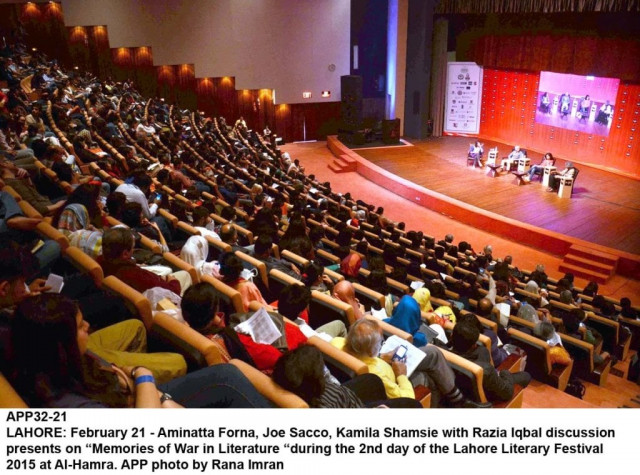‘Justice is necessary for there to be peace'
Asma Jahangir questions how any govt can talk to someone as cruel as the Taliban

Day 3 of Lahore Literature Festival. PHOTO: APP
She said I-will-kill-your-child-because-you-killed-mine attitude was not conducive to resolution of conflicts. But, she said, there was a limit to which one could go in peacefully dealing with one’s opponents. She referred to the possibility of talks between the United States and Afghan Taliban and questioned how a government could talk to someone as cruel as the Taliban. “Peace can be established if there is justice as well,” she said.
She was speaking at the Footnotes From the Frontlines session on the concluding day of the Lahore Literary Festival. Other panelists included cartoonist Joe Sacco, Egyptian journalist Yasmine El Rashidi and Sri Lankan author Romesh Gunesekera. Journalist Basharat Peer was the moderator and the topic under discussion was depiction of conflicts through journalism and fiction.
Gunesekera said his work as a journalist in a conflict zone had been helpful in understanding the experience of living through conflicts. He said regular engagement with people affected by conflicts had allowed him to do a close examination of how they coped with such incidents.
He lamented that the coverage of Sri Lankan affairs in the press was not adequate to document the rapid changes taking place in the society. He feared that a lot of developments would go unnoticed if this trend continued.
Sacco highlighted the need to expose the limits of journalism in being objective and telling the truth. “It is important to tell the people that media reports may at times be vague. They may not always answer all the questions about a particular issue at hand,” he said. He said in order to be a good cartoonist one needed to be good at reading people’s minds.
Yasmine El Rashidi said she had decided to take up writing as a profession to be able to break the taboos in the Arab culture.

















COMMENTS
Comments are moderated and generally will be posted if they are on-topic and not abusive.
For more information, please see our Comments FAQ